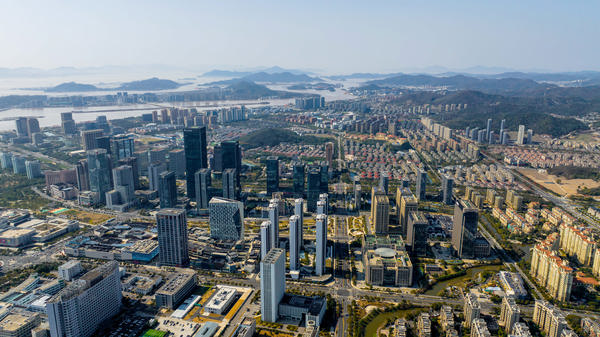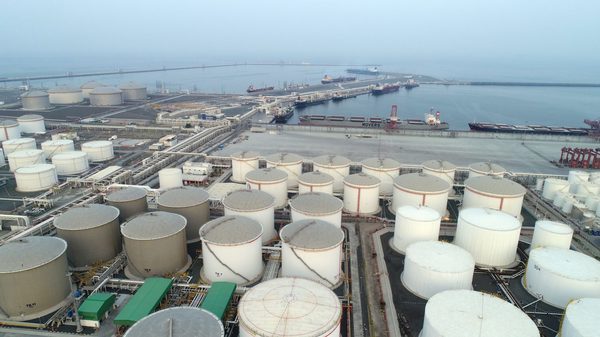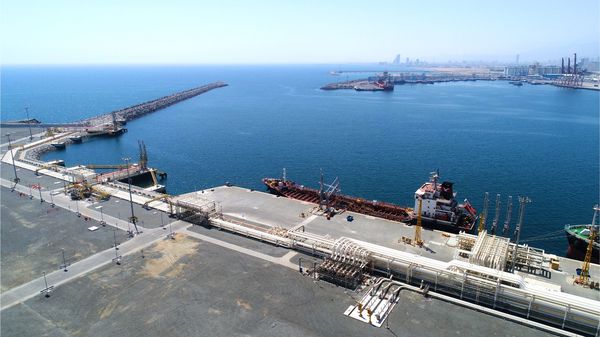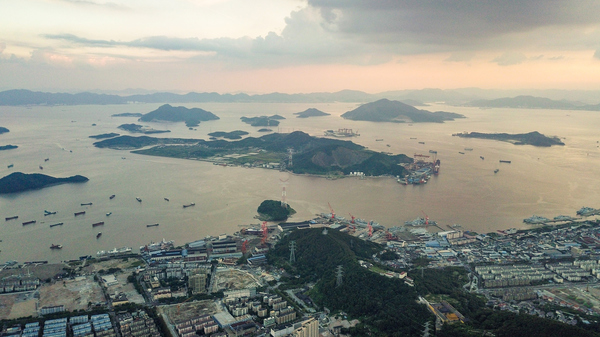East of Suez Market Update 27 Nov 2023
Prices have moved down in major Asian bunker hubs, and VLSFO availability continues to remain tight in Zhoushan.
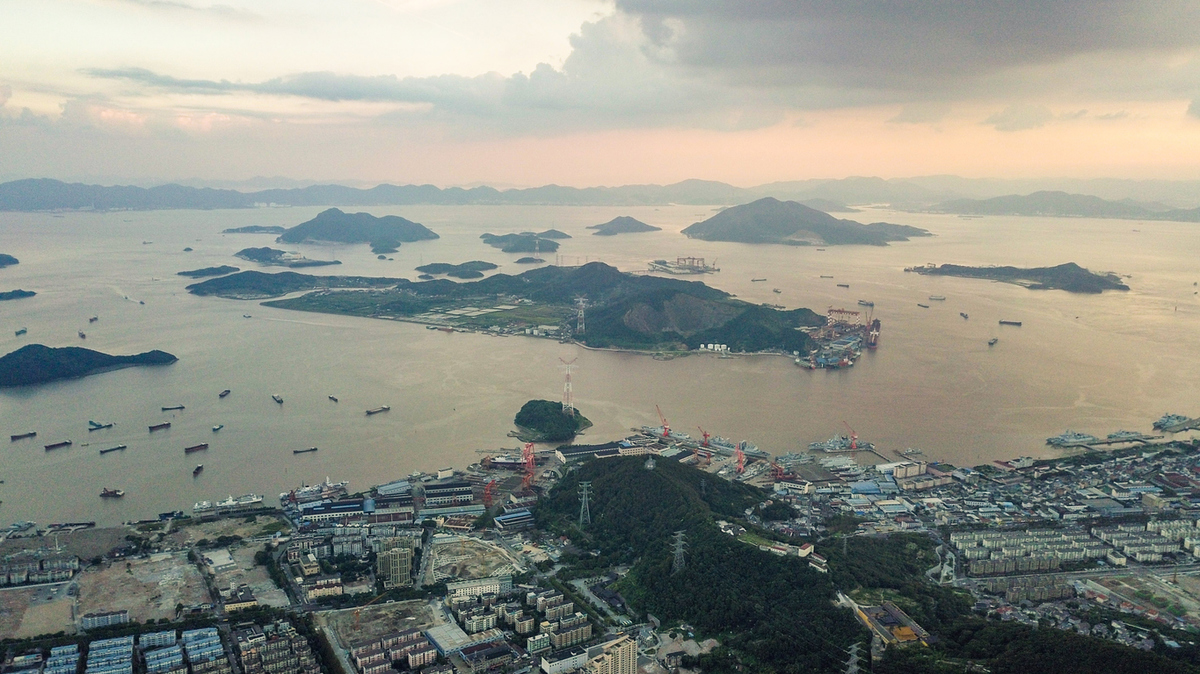 PHOTO: Aerial view of Zhoushan City, Zhejiang Province. Getty Images
PHOTO: Aerial view of Zhoushan City, Zhejiang Province. Getty Images
Changes on the day from Friday, to 17.00 SGT (09.00 GMT) today:
- VLSFO prices down in Zhoushan ($24/mt), Singapore ($19/mt) and Fujairah ($4/mt)
- LSMGO prices down in Singapore ($16/mt), Zhoushan ($14/mt) and Fujairah ($4/mt)
- HSFO prices down in Zhoushan ($16/mt), Singapore ($13/mt) and Fujairah ($4/mt)
Bunker benchmarks in East of Suez ports have mirrored Brent’s downturn and declined in the past day. Zhoushan’s VLSFO price has fallen $24/mt – the steepest among three major Asian bunker hubs. Some lower-priced VLSFO indications in Zhoushan over the weekend have contributed to drag the benchmark down.
Zhoushan’s steep VLSFO price decline has meant that its VLSFO premium over Singapore has slipped to a discount a marginal discount of $4/mt. The Chinese bunkering hub’s VLSFO premium over Fujairah has narrowed by $20/mt to $5/mt now.
A trader says VLSFO availability continues to remain tight in Zhoushan as several suppliers are running low on stocks. Most suppliers have refrained from providing lead times and deliveries of the grade remain subject to enquiry. HSFO availability, on the other hand, has improved in the port, with lead times halving from 5-7 days last week to 3-5 days now. LSMGO remains in good supply, with prompt dates available.
All grades remain under pressure in Fujairah. The supply pressure is due to product loading delays at oil terminals, compounded by bunker backlogs caused by weather disruption over the weekend, a source explains. Strong bunker demand has further contributed to the tightness.
Lead times of around 7-10 days are recommended for all grades in the Middle Eastern bunker hub – virtually unchanged from last week. Meanwhile, lead times of around five days are recommended for all grades at nearby Khor Fakkan port.
Brent
The front-month ICE Brent contract has moved $1.38/bbl lower on the day from Friday, to trade at $80.19/bbl at 17.00 SGT (09.00 GMT).
Upward pressure:
The upcoming OPEC+ meeting has lent support to declining Brent prices. The remote meeting is scheduled to take place this Thursday.
The oil market expects OPEC's key producer and de facto leader Saudi Arabia to roll over its current additional voluntary output cut of 1 million b/d into the first quarter of 2024. Additionally, the group’s top ally Russia is expected to extend export bans as well.
“We believe that the Saudis will roll over this cut and there is a growing possibility that we see a deeper cut from the broader group,” said two commodities market analysts at ING Bank. “In doing this, the group would provide good support to the market going into 2024,” they added.
Meanwhile, several reports suggested that the oil-producer group has made progress “in coming to a deal with Angola and Nigeria,” said ING’s head of commodities strategy Warren Patterson.
Angola and Nigeria agreeing to follow lowered production targets for 2024, backed by an additional 1 million b/d cut by Saudi Arabia, could cause a further supply shortage and push oil prices higher.
Downward pressure:
The delay in holding the joint ministerial meeting by OPEC+ producers has continued to add downward pressure on Brent’s price. Speculations about a dispute over production quotas for 2024 between Saudi Arabia and other OPEC+ producers including Angola and Nigeria have emerged as analysts said the two countries were “not happy with their lower 2024 production targets.”
Meanwhile, the International Energy Agency (IEA) projects a “slight” surplus in oil supply in 2024, even if OPEC+ producers continue to decrease supply next year, IEA’s head of oil markets and industry division Toril Bosoni told Reuters last week.
Crude analysts said that if Angola and Nigeria fail to reach a deal with OPEC+, oil will face further downward pressure due to the expected surplus in the market. “Clearly, if we do not see this [production quota agreement], it would put further downward pressure on the market, given the surplus over 1Q24 [first quarter 2024],” ING Bank’s analysts added.
By Tuhin Roy and Aparupa Mazumder
Please get in touch with comments or additional info to news@engine.online

Contact our Experts
With 50+ traders in 12 offices around the world, our team is available 24/7 to support you in your energy procurement needs.

